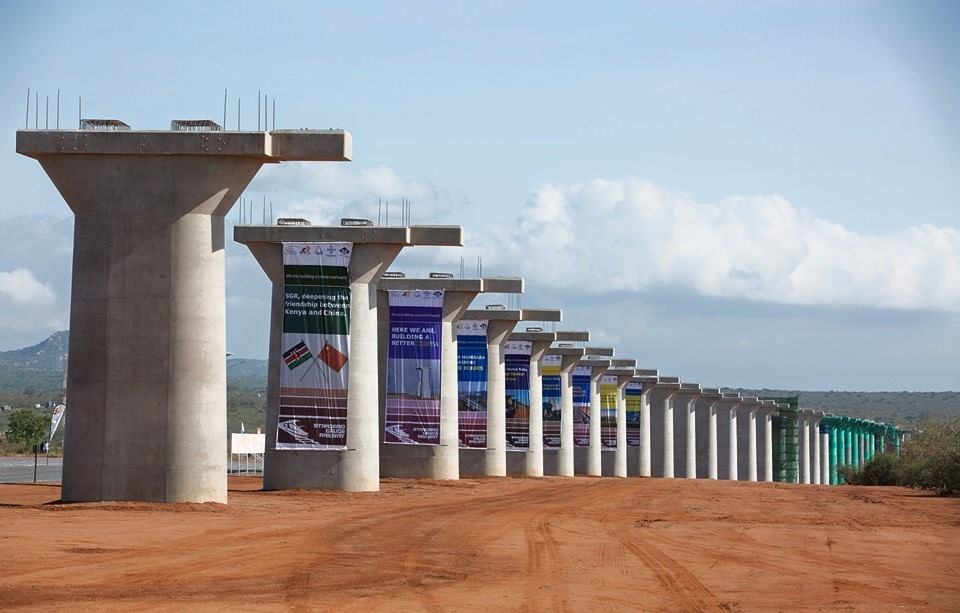The proposed routing of the new railway through Nairobi has been opposed by a section of Nairobi residents associations and the Conservation Alliance of Kenya.
The two groups object to the proposed routings of new railway through Nairobi and propose an alternative.
The biggest concern is the routing of the Standard Guage Railway (SGR) through the Nairobi National Park which the two groups feel will affect the park and cause unacceptable social impact by displacing thousands of people from their homes, including ancestral homes, cause loss of open spaces, affect air quality, increase pollution, affect health negatively and reduce recreational space.
The groups say that the routing will also cause irreparable ecological damage through habitat degradation especially loss of rare indigenous forests and wildlife, and reduce the rich biological diversity of the city.
“This contravenes the rights of citizens provided for under the Constitution of Kenya,” the groups say.
The groups also argue that there will be immeasurable economic loss in tourism, jobs and reduction of future options for livelihoods and economic growth.
“As our beloved country embarks on ambitious infrastructure development projects, there is an urgent need to recognize and protect the non-monetary values of our natural resources. As we develop, we must not fail to secure what is protected by law.”
The groups adds
“While we appreciate that Kenya needs the SGR, the proposed route through Nairobi is unnecessarily disruptive and costly. Looping through Nairobi National Park, the Ngong Road Forest, and residential areas does not add any economic value to the railway or Kenya. We propose a route that will balance social, environmental and economic benefits. This would be from Athi River directly south to the Rift Valley town of Maai Mahiu thereby, bypassing the city of Nairobi. This will preserve Nairobi’s valuable protected areas, whilst having less impact yet serving the purposes of the SGR and the greater metropolitan Nairobi area of tomorrow.”
The statement says that Nairobi is one of the world’s greatest capital cities boasting an oasis of nature and has the world’s greatest diversity of birds in any capital city, and indeed many countries. This ecological wealth should not be taken for granted. The park and forests serve as the “lungs” of the capital, replenishing atmospheric oxygen and soaking up pollutants, giving us clean water, and supporting crop pollinators which in turn have immeasurable health benefits and bolster food security. The park also plays a priceless role in nurturing the spiritual well being of Nairobi’s four million citizens, as well as the biodiversity and cultural heritage it preserves.
![An elevated section of the railway line to give room to wildlife. The groups want the route through Nairobi National Park changed. [Photo: nairobiwire.com]](https://www.monitor.co.ke/wp-content/uploads/2015/12/SGR_nairobiwire.jpg)
The groups say that the SGR project is setting a dangerous precedent and developments for the future cannot be driven by short term vision. They argue that the park and forests of Nairobi were set aside long before independence to preserve the spectacular ecological values for the people of Kenya and for posterity, by our predecessors. These commitments have been honoured by our founders and past presidents.
The statement quotes founding father Mzee Jomo Kenyatta, the first president of the Republic of Kenya, as displayed at the entrance of Nairobi National Park.
“The natural resources of this country – its wildlife which offers such an attraction to visitors from all over the world. The beautiful places in which these animals live, the mighty forests which guard the water catchment areas so vital to the survival of man and beast – are a priceless heritage for the future. The government of Kenya, fully realizing the value of its natural resources pledges itself to conserve them for posterity with all the means at its disposal.”
With this, the groups are questioning whether the government of today, has explored all options with all the means at its disposal.
In the same vein as the founding President, President Uhuru Kenyatta at the just concluded climate change summit in Paris, reiterated his commitment to achieving and maintaining tree cover of at least 10percent of the country’s total land area, and announced that we currently stand at only 7.2 percent. The proposed route into Nairobi National Park cuts through the only forest in the Park and Ngong Road Forests. This will set Kenya back against this goal.
![President Uhuru Kenyatta during the launch of the SGR Project. He has been asked to consider re-routing the railway line. [Photo: kenyanews247.com]](https://www.monitor.co.ke/wp-content/uploads/2015/12/SGR_kenyanews247.jpg)



It is commendable that these residential associations and the Conservation Alliance of Kenya are taking a lead in ending the rape of Nairobi National Park by the Gov. of Kenya. However, I think they are being too polite in “requesting” that the Single Gauge Railway not go through Nairobi Nat Park —- They and we all should be “demanding” that the SGR does not bi-sect NNP. By law, the SGR cannot go through Nairobi NP and it should be fought by all means possible to stop this proposed destruction of East Africa’s first national park.
Quite right …
Absolutely….It makes no sense to destroy the only National Park in the world close to a capital city and one renowned for its wildlife and natural resources conservation with tourism as one if its primary economies. Modern cities route any new main goods railways around existing urban centres and protected areas, while having a less disruptive feeder line for passenger access. Surely that would be in keeping with the principles of Vision 2030 and be hailed as a developmental project with foresight and respect for its citizens, its laws and its natural resources and would promote the reputation of the government internationally.?
Agreed, The proposed overhead SGR over NNP will be an ugly monumental folly. A disgraceful decision by the Government and KWS.